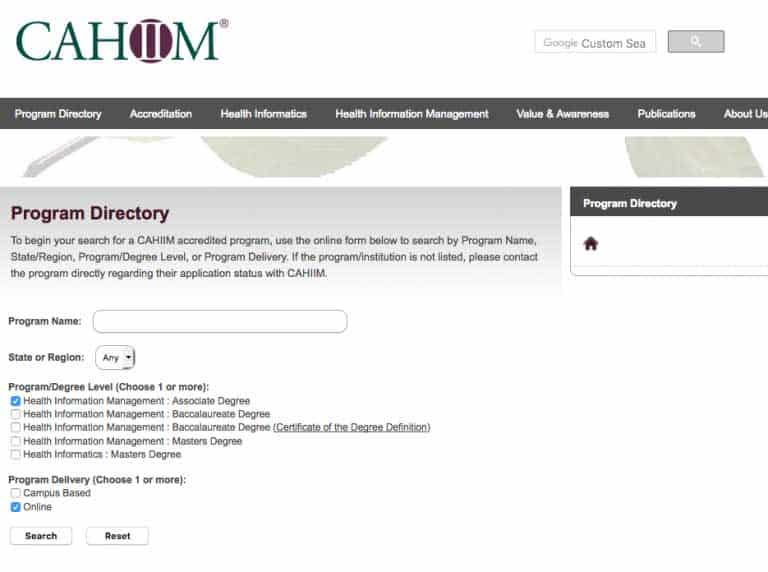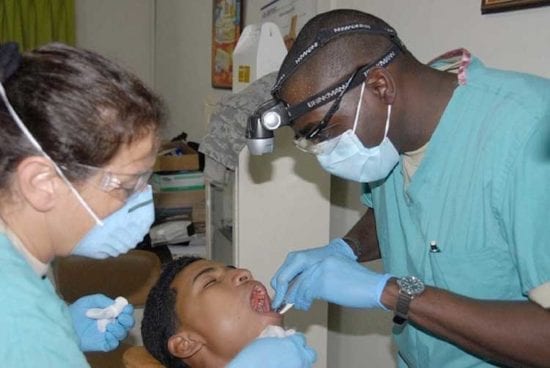Kỹ thuật viên thông tin y tế là gì?
Kỹ thuật viên chăm sóc sức khỏe đọc và lưu trữ hồ sơ y tế. Hồ sơ bệnh án rất quan trọng đối với cuộc sống và sức khỏe của con người. Những người có kỹ năng sẽ tổ chức và quản lý thông tin này. Tên của công việc này là kỹ thuật viên thông tin y tế (HIT) hoặc kỹ thuật viên hồ sơ y tế.
Về công việc
Bạn có thể mong đợi điều gì ở công việc kỹ thuật viên thông tin y tế?
Nhiệm vụ của một kỹ thuật viên thông tin y tế
Nhiệm vụ chính của kỹ thuật viên thông tin y tế là giữ hồ sơ y tế an toàn, chính xác và cập nhật. Bác sĩ, y tá, quản lý bệnh viện và các công ty bảo hiểm y tế đều cần được cung cấp thông tin chính xác. Hầu hết các hồ sơ này đều được lưu giữ trên máy tính. Một số được ghi trên giấy và những giấy tờ này có thể cần phải được quét và lưu trữ.
HIT đảm bảo rằng tất cả nhân viên y tế khác (như bác sĩ, y tá và kỹ thuật viên y tế) đều hoàn thành hồ sơ y tế. HIT phải hiểu và sử dụng các mã được sử dụng cho các quy trình y tế khác nhau.
Xem video về công việc của một HIT
(https://www.youtube.com/watch?v=D18sMdECYmk)
Nơi làm việc
Hầu hết các HIT đều làm việc ở bệnh viện. Họ cũng có thể làm việc tại các phòng khám và phòng khám bác sĩ. Một số HIT làm việc tại nhà. HIT cũng có thể làm việc cho các công ty bảo hiểm y tế, chính phủ hoặc trong nghiên cứu y khoa.
Mức lương cho kỹ thuật viên thông tin y tế
Năm 2017, mức lương trung bình của HIT là khoảng 39.000 đô la mỗi năm. Nhưng mức lương hàng năm có thể lên tới hơn 70.000 đô la đối với những công nhân có kinh nghiệm ở một số thành phố lớn hoặc thấp tới 25.000 đô la đối với những công nhân mới vào nghề ở vùng nông thôn.
Về người đó
Người như thế nào mới là chuyên gia thông tin y tế giỏi?
Những phẩm chất bạn nên có
- chú ý đến chi tiết – công việc HIT có rất nhiều chi tiết nhỏ và phải chính xác
- đạo đức tốt – hồ sơ y tế được bảo mật
- khả năng phân tích thông tin – dữ liệu HIT bao gồm thông tin y tế phức tạp và các quy định
Kỹ năng bạn sẽ cần
- kỹ năng máy tính
- hiểu biết về các thuật ngữ y khoa
- hiểu biết về các thủ tục pháp lý
- kiến thức về chi phí chăm sóc sức khỏe và thanh toán
- đào tạo về hệ thống mã hóa y tế

Các lớp học của USAHello miễn phí và dành cho người tị nạn và người nhập cư. Chuẩn bị cho kỳ thi GED® hoặc để trở thành công dân Hoa Kỳ.
Có đủ điều kiện
Kỹ thuật viên thông tin y tế cần đào tạo, chứng nhận và kinh nghiệm gì?
Đào tạo cho kỹ thuật viên thông tin y tế
Khóa đào tạo phổ biến nhất là khóa Quản lý thông tin y tế. Khóa học này phải được công nhận (phê duyệt) bởi Ủy ban Công nhận Giáo dục Quản lý Thông tin và Tin học Y tế (CAHIIM). Khóa học được CAHIIM công nhận sẽ cấp cho bạn bằng cao đẳng. Khóa học này thường kéo dài hai năm. Bạn có thể tìm thấy khóa học được công nhận gần bạn thông qua cơ sở dữ liệu Cahim.
Trên cơ sở dữ liệu CAHIIM, hãy chọn tiểu bang của bạn từ menu thả xuống. Bỏ chọn tất cả các chương trình ngoại trừ “Quản lý thông tin y tế: Bằng liên kết”. Nếu bạn chỉ muốn học trực tuyến, hãy bỏ chọn “Học tại trường”. Sau đó chọn “Tìm kiếm”.

Nếu không có chương trình nào tại tiểu bang của bạn, hãy thử sang tiểu bang lân cận. Có 109 khóa học trực tuyến trên cơ sở dữ liệu này và nhiều khóa học tại trường khác.
Chứng nhận cho kỹ thuật viên thông tin y tế
Có một số chứng chỉ cho các loại HIT khác nhau. Một số dành riêng cho hệ thống mã hóa hoặc hồ sơ ung thư. Chứng nhận phổ biến nhất là chứng nhận Kỹ thuật viên thông tin y tế đã đăng ký (RHIT). Để nộp đơn xin học RHIT, bạn cần hoàn thành khóa học được CAHIIM công nhận.
Kinh nghiệm
Kinh nghiệm cũng quan trọng. Ví dụ, nếu bạn từng làm lễ tân tại phòng khám bác sĩ, bạn sẽ học cách quản lý thông tin. Nhân viên y tế có thể có kinh nghiệm về mã y tế. Những công việc trước đây có thể giúp bạn trở thành kỹ thuật viên thông tin y tế mà không cần học đại học. Có lẽ bạn vẫn cần phải có chứng chỉ.
Chúng tôi mong muốn cung cấp thông tin dễ hiểu được cập nhật thường xuyên. Thông tin này không phải là lời khuyên pháp lý.



